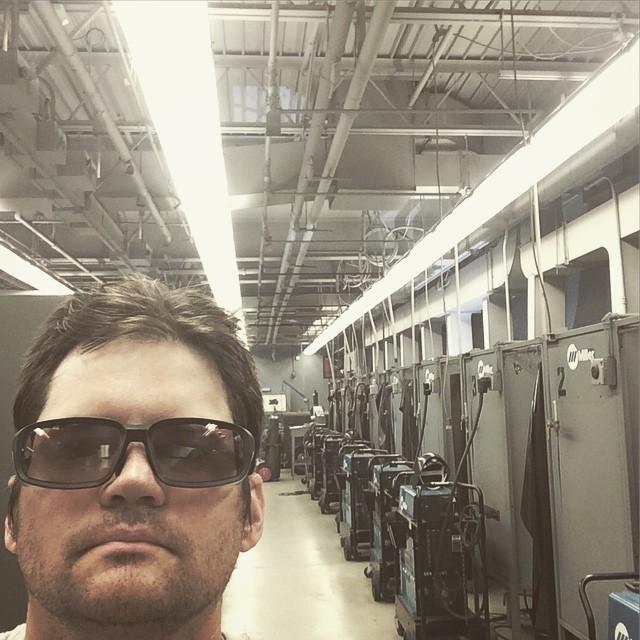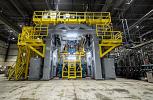Owner, Brown Dog Welding
- FMA
- The Fabricator
- FABTECH
- Canadian Metalworking
Categories
- Additive Manufacturing
- Aluminum Welding
- Arc Welding
- Assembly and Joining
- Automation and Robotics
- Bending and Forming
- Consumables
- Cutting and Weld Prep
- Electric Vehicles
- En Español
- Finishing
- Hydroforming
- Laser Cutting
- Laser Welding
- Machining
- Manufacturing Software
- Materials Handling
- Metals/Materials
- Oxyfuel Cutting
- Plasma Cutting
- Power Tools
- Punching and Other Holemaking
- Roll Forming
- Safety
- Sawing
- Shearing
- Shop Management
- Testing and Measuring
- Tube and Pipe Fabrication
- Tube and Pipe Production
- Waterjet Cutting
Industry Directory
Webcasts
Podcasts
FAB 40
Advertise
Subscribe
Account Login
Search
Training for the trades—where to look
- By Josh Welton
- August 11, 2015
Lately I’ve been noticing a significant uptick in messages asking guidance for breaking into the trades. They’re mostly from younger kids, but some are form folks past college age that are looking to change careers, probably in part because they were never given an option when they were those younger kids.
Here’s my dilemma: The way I got my start was most definitely not typical, and I’m less than comfortable recommending schools and organizations that I have not interacted with. I did receive a helpful e-mail from my friend Tank Bilt today regarding his path to becoming a fabricator/artist, and I’ll share a bit of his story too.
I’ve shared my story before, but here are the Cliffs Notes: I started as a general laborer for Mopar, took the apprenticeship test, and became a millwright apprentice.
Getting into the trades like that was pretty rare when I did it, and it’s certainly not a thing you could plan for these days. That being said, I will add that in the Detroit area, the auto industry currently is hiring for general labor and skilled-trades jobs. If you get your foot in the door as the former, you might be able to get that apprenticeship test.
Another plan of attack, one that I tend to push people toward, is to look into local community colleges. I say this for two reasons:
1. Community college courses are relatively inexpensive, so starting with a beginner welding or machining course won’t be a big financial gamble. If it’s your first taste of the trades, you may find you just don’t dig it. If that ends up being the case, you can walk away to find another path.
2. If you do end up enjoying the classes and excel at them, no one has its finger on the pulse of the local industry like community colleges do. Oftentimes it’s worth the cost of the classes just to make those connections. When shops or manufacturers look for fresh talent, this is where they call.
During my apprenticeship, I took classes at Macomb Community College. For my current job at General Dynamics, I’ve taken certification courses there, and starting next semester, I’ll be part of MCC’s welding faculty as well.
Vocational secondary schools are making a bit of a comeback too. I visited The Fab School, Rancho Cucamonga, Calif., a few years ago and was definitely impressed. It’s now expanding.
I have a number of friends who attended the University of Northwestern Ohio, Lima. I don’t know much about the Tulsa Welding School or WyoTech, but those and more are out there as well.
In the message Tank sent me, he relayed another option, the military. His story is more complex than just that, and it’ll be featured in a future “Still Building America” post, but this portion of it is a worthwhile thing to think about. Even though he wasn’t classified in a fabrication capacity, there were shops on base where he could hone his skills. And there are opportunities where you can get hands-on training if so desired.
If you’re still in junior high or high school, the obvious first place to look is your school to see if it provides a shop class and/or a co-op with local industry. If it doesn’t, the task becomes more difficult, but not impossible.
Jesse James talks about that when he was a kid, he’d go from shop to shop and just ask to sweep floors. At machine shops, fab shops, hot rod shops, or bike shops, take on any no-skill, high-effort task that needs to be done, and don’t ask for pay. Most small shops operate at such a thin profit margin, they’d never be able to hire on general help. But if you bust your tail, shop personnel might be willing to show you a thing or two. And if you earn their trust, you might be able to stay after hours to use the equipment.
If you have other options I missed, or perhaps more information about something I did mention, feel free to add it in the comments!
subscribe now

The Welder, formerly known as Practical Welding Today, is a showcase of the real people who make the products we use and work with every day. This magazine has served the welding community in North America well for more than 20 years.
start your free subscriptionAbout the Author

About the Publication
- Stay connected from anywhere

Easily access valuable industry resources now with full access to the digital edition of The Fabricator.

Easily access valuable industry resources now with full access to the digital edition of The Welder.

Easily access valuable industry resources now with full access to the digital edition of The Tube and Pipe Journal.
- Podcasting
- Podcast:
- The Fabricator Podcast
- Published:
- 04/16/2024
- Running Time:
- 63:29
In this episode of The Fabricator Podcast, Caleb Chamberlain, co-founder and CEO of OSH Cut, discusses his company’s...
- Industry Events
16th Annual Safety Conference
- April 30 - May 1, 2024
- Elgin,
Pipe and Tube Conference
- May 21 - 22, 2024
- Omaha, NE
World-Class Roll Forming Workshop
- June 5 - 6, 2024
- Louisville, KY
Advanced Laser Application Workshop
- June 25 - 27, 2024
- Novi, MI

































